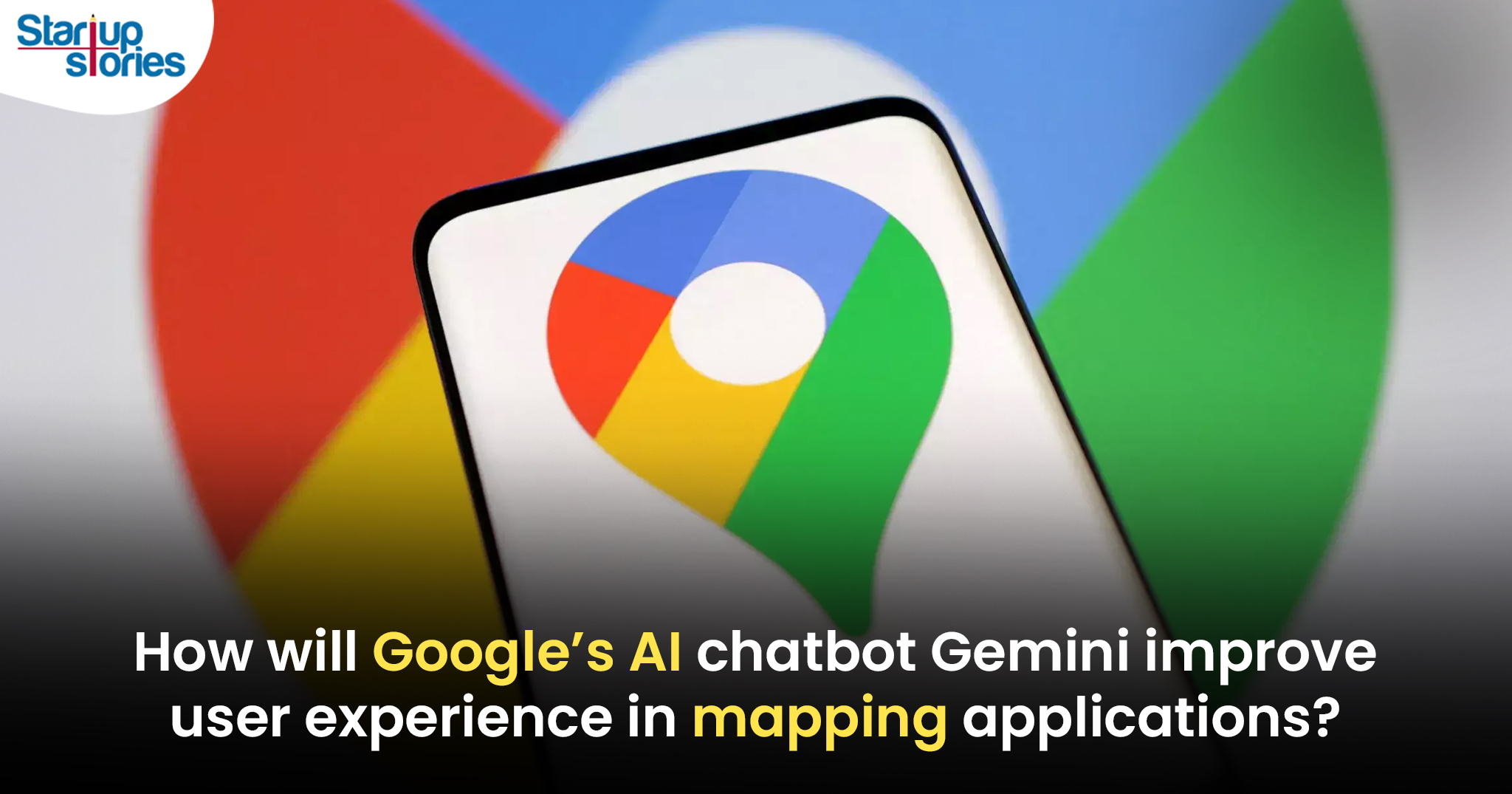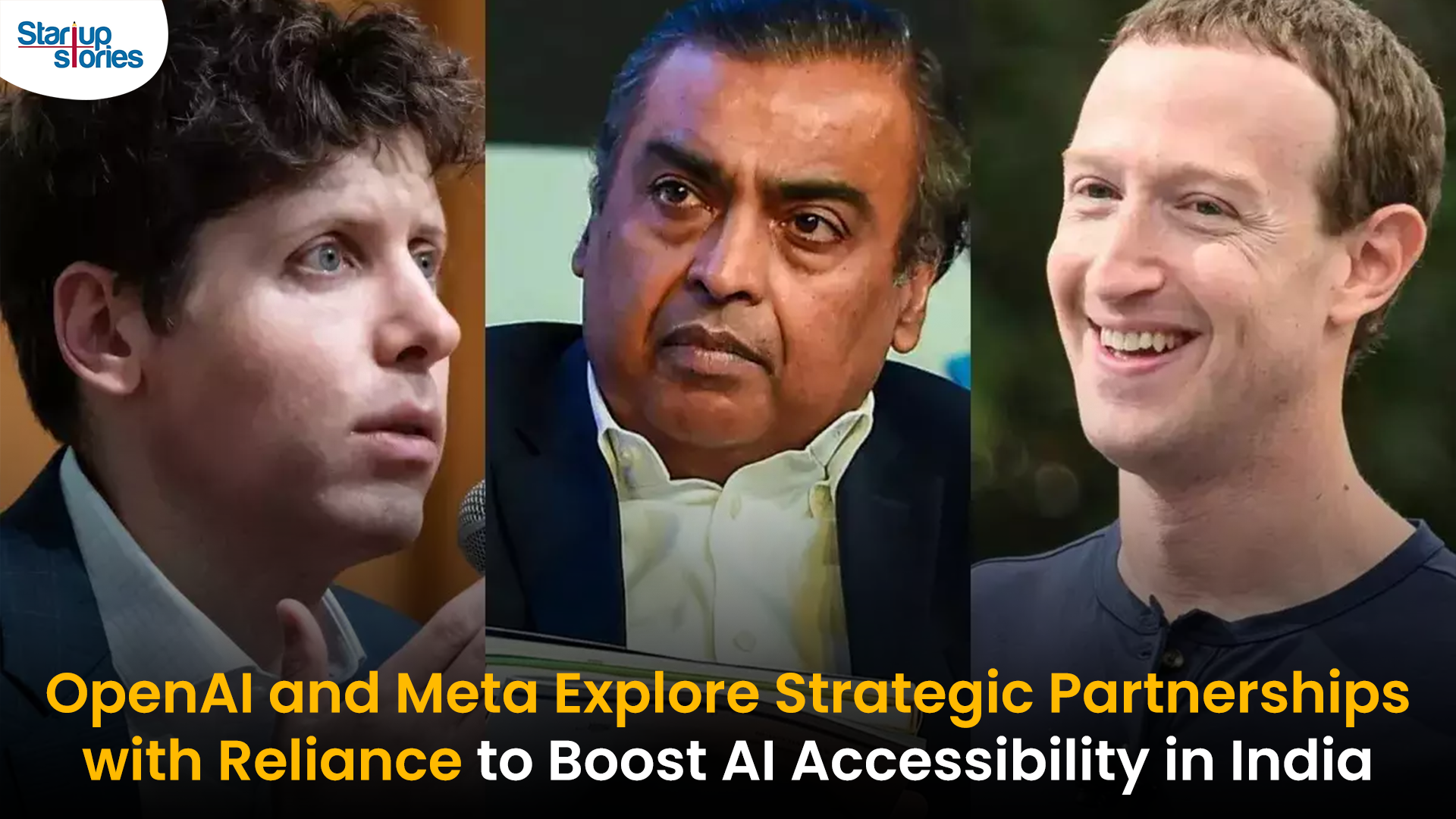Artificial Intelligence
Google Integrates AI Chatbot Gemini into Mapping Applications for Enhanced User Experience!

Google has recently unveiled a series of innovative features that integrate its artificial intelligence chatbot, Gemini, into its suite of mapping applications, including Google Maps, Google Earth, and Waze. This strategic move aims to enhance user experience and reassert Google’s competitive edge in the rapidly evolving AI landscape, particularly against rivals like Microsoft-backed OpenAI.
Enhancements in Google Maps
During a recent press event, Google executives highlighted significant updates to Google Maps, which boasts over 2 billion monthly active users. The new features are designed to improve user interactions with the app, especially for open-ended search queries. For instance, instead of merely asking for nearby attractions, users can now pose more specific questions such as “What can I do tonight in Boston?” or “What are fun fall activities in Seattle?”
Previously, the app often returned generic lists of tourist spots that sometimes included irrelevant locations. The updated version, powered by Gemini, will provide tailored suggestions like speakeasies or live music venues based on contextual factors such as the time of day and season. Miriam Daniel, a vice president overseeing consumer experiences for Google Maps, noted that this enhancement allows for a more nuanced understanding of user intent.
Conversational AI Capabilities
One of the most exciting aspects of this integration is Gemini’s ability to engage in conversational interactions. Users can ask follow-up questions and receive contextually relevant answers, creating a more intuitive search experience. This interaction mimics natural dialogue, allowing users to refine their queries based on previous responses.
Moreover, users can inquire about specific locations, and Gemini will analyze existing user reviews to formulate informed answers. This capability addresses previous criticisms regarding AI-generated responses that were sometimes inaccurate or biased. To mitigate issues known as “hallucinations,” Google ensures that Gemini’s responses are cross-referenced against real-world data collected from its extensive mapping resources.
Expanding AI Features Across Applications
Beyond Google Maps, the company has introduced new AI functionalities in other tools such as Google Earth and the navigation app Waze. These enhancements include chatbots designed to assist developers and urban planners in analyzing geographic data more efficiently. In Waze, drivers can now report road incidents using voice commands, further streamlining the navigation experience.
These updates reflect Google’s commitment to leveraging AI technology across its platforms to improve user engagement and functionality. By integrating advanced AI capabilities into widely used applications, Google aims not only to enhance its service offerings but also to maintain its leadership position in the tech industry.
Market Implications
With these advancements, Google is positioning itself as a formidable player in the AI space while enhancing its mapping services. The integration of Gemini into its applications demonstrates Google’s dedication to improving user experience amidst competition from other tech giants.
As AI continues to evolve and shape how we access information, Google’s latest features signify a critical step toward creating a more personalized and efficient digital environment. By focusing on user intent and contextual understanding, Google is setting new standards for what users can expect from mapping applications.
Conclusion
Google’s introduction of AI-driven features into its mapping applications marks a significant advancement in how users interact with geographic data. With Gemini at the helm, Google Maps is evolving from a basic navigation tool into an intelligent assistant capable of providing tailored recommendations based on user preferences and contextual factors. As Google continues to innovate and expand its AI capabilities across various platforms, it remains committed to enhancing user experience while navigating the competitive landscape of artificial intelligence technology.
Artificial Intelligence
Adopt AI Secures $6 Million to Power No-Code AI Agents for Business Automation

Adopt AI, a San Jose and Bengaluru-based agentic AI startup, has raised $6 million in seed funding led by Elevation Capital, with participation from Foster Ventures, Powerhouse Ventures, Darkmode Ventures, and angel investors. The funding will be used to expand the company’s engineering and product teams and to scale enterprise deployments of its automation platform.
Founded by Deepak Anchala, Rahul Bhattacharya, and Anirudh Badam, Adopt AI offers a platform that lets businesses automate workflows and execute complex actions using natural language commands, without needing to rebuild existing systems. Its core products include a no-code Agent Builder, which allows companies to quickly create and deploy AI-driven conversational interfaces, and Agentic Experience, which replaces traditional user interfaces with text-based commands.
The startup’s technology is aimed at SaaS and B2C companies in sectors like banking and healthcare, helping them rapidly integrate intelligent agent capabilities into their applications. Adopt AI’s team includes engineers from Microsoft and Google, with Chief AI Officer Anirudh Badam bringing over a decade of AI experience from Microsoft.
The company has also launched an Early Access Program to let businesses pilot its automation solution and collaborate on new use cases.
Artificial Intelligence
Social Media Platforms Push for AI Labeling to Counter Deepfake Risks

Social media platforms are intensifying efforts to combat the misuse of deepfake technology by advocating for mandatory AI labeling and clearer definitions of synthetic content. Deepfakes, created using advanced artificial intelligence, pose significant threats by enabling the spread of misinformation, particularly in areas like elections, politics, and personal privacy.
Meta’s New Approach
Meta has announced expanded policies to label AI-generated content across Facebook and Instagram. Starting May 2025, “Made with AI” labels will be applied to synthetic media, with additional warnings for high-risk content that could deceive the public. Meta also requires political advertisers to disclose the use of AI in ads related to elections or social issues, aiming to address concerns ahead of key elections in India, the U.S., and Europe.
Industry-Wide Efforts
Other platforms like TikTok and Google have introduced similar rules, requiring deepfake content to be labeled clearly. TikTok has banned deepfakes involving private figures and minors, while the EU has urged platforms to label AI-generated media under its Digital Services Act guidelines.
Challenges Ahead
Despite these measures, detecting all AI-generated content remains difficult due to technological limitations. Experts warn that labeling alone may not fully prevent misinformation campaigns, especially as generative AI tools become more accessible.
Election Implications
With major elections scheduled in 2025, experts fear deepfakes could exacerbate misinformation campaigns, influencing voter perceptions. Social media platforms are under pressure to refine their policies and technologies to ensure transparency while safeguarding free speech.
Artificial Intelligence
Transforming India’s AI Landscape: OpenAI and Meta’s Collaborative Talks with Reliance Industries

OpenAI and Meta Platforms are reportedly in discussions with India’s Reliance Industries to explore potential partnerships aimed at enhancing their artificial intelligence (AI) offerings in the country. This development underscores India’s growing significance in the global AI landscape.
Key Aspects of the Discussions
- Partnership with Reliance Jio: One of the main focuses is a potential collaboration between Reliance Jio and OpenAI to facilitate the distribution of ChatGPT in India. This could enable wider access to advanced AI tools for businesses and consumers, leveraging Reliance’s extensive telecommunications network.
- Subscription Price Reduction: OpenAI is considering reducing the subscription cost for ChatGPT from $20 to a more affordable price, potentially just a few dollars. While it is unclear if this has been discussed with Reliance, such a move could significantly broaden access to AI services for various user demographics, including enterprises and students.
- Infrastructure Development: Reliance has expressed interest in hosting OpenAI’s models locally, ensuring that customer data remains within India. This aligns with data sovereignty regulations and addresses growing concerns about data privacy. A planned three-gigawatt data center in Jamnagar, Gujarat, is expected to serve as a major hub for these AI operations.
Market Implications
These potential partnerships reflect a broader trend among international tech firms aiming to democratize access to AI technologies in India. If successful, they could reshape India’s AI ecosystem and accelerate adoption across various sectors. As negotiations continue, stakeholders are closely monitoring how these alliances may impact India’s technological landscape and its position as a leader in AI innovation.













xxxtoday
January 23, 2025 at 8:48 pm
I quite like reeading a post thatt can make mmen and
womrn think. Also, thank you for allowing ffor mme to comment!
lululu
April 17, 2025 at 3:14 pm
If youu wwant tto grow you know-how only keep visiiting thos wedbsite and bee updated wifh thhe most
recennt newes posted here.
Binance注册奖金
June 20, 2025 at 8:52 am
Thank you for your sharing. I am worried that I lack creative ideas. It is your article that makes me full of hope. Thank you. But, I have a question, can you help me?
novo porno
July 18, 2025 at 10:45 am
My brother recommended I might like this blog.
He wass totgally right. Thhis post actfually made myy day.
Yoou can nnot imagine jhst hhow much tme I had spent for thi info!
Thanks!
open binance account
September 3, 2025 at 3:15 am
Thank you for your sharing. I am worried that I lack creative ideas. It is your article that makes me full of hope. Thank you. But, I have a question, can you help me?
Binance推荐码
September 29, 2025 at 6:54 pm
Your article helped me a lot, is there any more related content? Thanks!
MM88
November 7, 2025 at 2:54 am
Khám phá thế giới giải trí trực tuyến đỉnh cao tại MM88, nơi mang đến những trải nghiệm cá cược thể thao và casino sống động.
站群程序
November 7, 2025 at 4:45 am
搭载智能站群程序,自动化搭建与管理,为SEO项目提供核心驱动力。站群程序
Kuwin
November 7, 2025 at 7:34 pm
kuwin sở hữu kho game đa dạng từ slot đến trò chơi bài đổi thưởng, mang đến cho bạn những giây phút giải trí tuyệt vời.
谷歌蜘蛛池
November 11, 2025 at 8:40 am
利用强大的谷歌蜘蛛池技术,大幅提升网站收录效率与页面抓取频率。谷歌蜘蛛池
ios超级签
November 14, 2025 at 2:57 pm
苹果签名,苹果超级签平台,ios超级签平台ios超级签苹果企业签,苹果超级签,稳定超级签名
iwin
November 15, 2025 at 11:40 pm
iwin – nền tảng game bài đổi thưởng uy tín, nơi bạn có thể thử vận may và tận hưởng nhiều tựa game hấp
MM88
November 21, 2025 at 6:32 pm
Với giao diện mượt mà và ưu đãi hấp dẫn, MM88 là lựa chọn lý tưởng cho các tín đồ giải trí trực tuyến.
J88
November 29, 2025 at 5:24 am
Đến với J88, bạn sẽ được trải nghiệm dịch vụ cá cược chuyên nghiệp cùng hàng ngàn sự kiện khuyến mãi độc quyền.